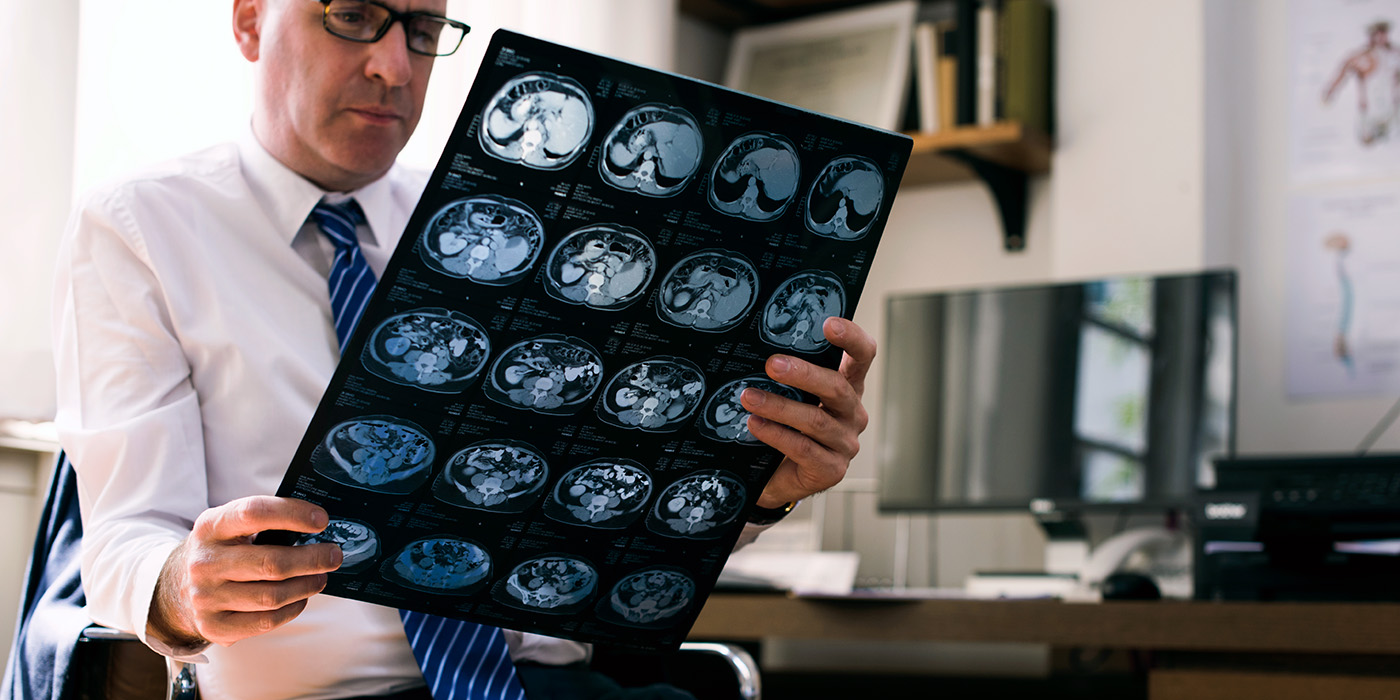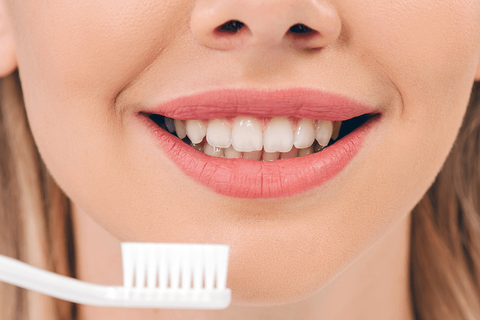Alcohol
Health
Is unwinding with a drink rotting your brain?

by Christine Humphreys
Published: August 02, 2023 Last updated: November 30, 2023

As we navigate the demands of daily life, it’s not uncommon for many of us to unwind with a chilled wine or a cold beer.
After a skinful at the weekend, we may even joke we’ve ‘lost a few brain cells’ but alcohol related brain damage (ARBD) is no laughing matter and you don’t have to regularly get drunk to get it.
While enjoying a few drinks may seem harmless, consistently consuming alcohol above recommended guidelines can be quietly rotting your grey matter.
You drink to relax but our bodies develop a tolerance to alcohol over time so you may not even feel tiddly.
Perhaps you notice problems concentrating, becoming forgetful and struggling to plan ahead leading to disorganisation and anxiety.
It may feel like waking up with a hangover every day and, if you carry on drinking to excess – even if you seldom feel intoxicated – it will only get worse.
Left unchecked, this condition eventually affects our ability to perform everyday tasks, our emotional well-being, and physical coordination
However, you may never know you have it even when it goes on to cause the most severe and irreversible form – Wernicke-Korsakoff Syndrome.
You may not realise you’re affected because one of its elements is the ability to rob us of our insight and self awareness as the disease progresses.
That means those who continue to drink recklessly and go on to develop the condition, often have no concept of their affliction despite displaying clear symptoms to those around them.
Are you at risk?
Not everyone who develops an alcohol use disorder will go on to suffer cognitive impairment.
Many of us will have heard of a friend’s dad who ‘drank eight pints a day and lived to be 90’.
The risk of developing it depends on several factors, including genetics, overall health, age, your biological sex, and – importantly – the quality of your diet.
But you can have a family history of good health and eat like an emperor but how often you imbibe, the amount you consume and how long you’ve been on the slippery slope will be the deciding factor.
You may be drinking half a bottle of wine a night to enjoy that warm relaxed feeling without feeling you are drunk.
But experts say that women drinking 30 units a week and men drinking 50 units a week will have it after five years supping at these levels.
The expert opinion
![[object Object]](https://cdn1b.alcoholfree.com/images/prof-kenneth-wilson.jpeg)
Dr Kenneth Wilson
Doctor Kenneth Wilson is an expert in this field. He is a retired Professor of Psychiatry at the University of Liverpool. His clinical work focused on dementia and developing services for alcohol related brain damage.
He earned a prestigious award from the Royal College of Psychiatrists for his work and he helped develop the college’s professional guidelines for managing people with the condition.
Dr Wilson explained: “There’s no doubt that alcohol has long-term effects on the brain.
“Let’s face it, we drink alcohol because it affects our brains. That’s why everybody drinks alcohol. They don’t drink it for its effects on their liver or their kidneys; it’s because it affects our brain. Consequently, too much of it will do you harm.
“If you drink enough that you start getting confused, That’s what we call getting drunk. If you drink an awful lot of it over a long period of time, then it starts affecting you even though you’ve not got alcohol in your blood. That’s the beginning of alcohol related brain damage.”
Dr Wilson says it’s usually found between the ages of 30 and 65 but can start as early as the 20s. It tends to appear younger in women than men due to physiological differences.
“We can’t put an exact figure on it and say, ‘If you drink this much you will get alcohol related brain damage’, but we can say, heavy-drinking people are at a high risk,” he said.
“For women drinking 30 units a week for about five years and men about 50 units a week for five years – probably on the back of social drinking before that – there’s a very good chance that alcohol will start affecting your thinking even though you’re not drunk. It can lead to long-standing changes in your intellect.”
How common is ARBD?
Although Dr Wilson usually deals with some of the most severe cases, he says this condition is progressive if alcohol misuse continues and can be found on a spectrum from treatable mild degeneration to irreversible harm.
Studies have suggested that cases are particularly high in some communities such as rough sleepers but there is some evidence that it may be affecting around 1% of the general population.
Dr Wilson cited a study among homeless people in Glasgow and the findings of international research that analysed the findings of around 42,000 post-mortems.
“Something like 30 to 50 percent of homeless people in Glasgow in the 1980s were found to have alcohol related brain damage,” he said.
“There was a survey done of a large series of post-mortems done in America and Europe and Britain from the 1980s to the ‘90s. I think they found between 0.5 and 1.5 percent of post mortem brains showed evidence of alcohol related brain damage.
“In Britain, it worked out at about 0.9 percent. So, something like just under one percent of British people may well have some changes in the brain due to alcohol.”
How booze causes brain damage?
Alcohol has a direct effect on the brain causing slurred speech and lack of coordination but it also interferes with the digestive system and this can lead to vitamin deficiencies even among people who appear to eat a good diet.
Dr Wilson explained that booze blocks the absorption of the B1 vitamin Thiamine from the gut. Thiamine needs to be processed to convert food into energy, so even if you have it in a normal diet, if you drink a lot of alcohol the thiamine won’t be absorbed.
“If you’re drinking a lot of alcohol, then often your diet will change and you probably eat less because you’re taking in all your calories through alcohol. You’ll get the munchies, but you won’t necessarily have proper food, so you’re probably reducing your thiamine intake anyway,” he added.
“And lastly, but not least, alcohol prevents the brain cells from actually utilising the thiamine and thiamine is critical for turning nutrients into energy. Consequently, because your brain is the biggest energy user in your body, it’s the first to suffer when you have thiamine deficiency.”
Recognising the signs
Experience in the field has found that early detection is crucial.
If you notice memory lapses, difficulty concentrating, mood swings, sleep disturbances and co-ordination or balance problems, it’s essential to consult a healthcare professional.
These symptoms can be signs of other conditions so it’s important not to try to self diagnose.
Symptoms can range from memory problems and mood changes – which we can often put down to stress or sleep disturbance – to the most severe manifestations of Wernicke-Korsakoff Syndrome which can be fatal.
Because it’s possible that the symptoms may be due to other causes, it’s often difficult for health workers to diagnose.
That’s why it’s essential to be honest with health care providers about how much you drink and how long you’ve been drinking.
If you tell them you enjoy the occasional half bottle of wine, they are not going to look for ARBD. If you admit to frequent, heavy drinking and are finding it hard to stop, it’s easier for them to join up the dots.
What's the hope of recovery?
It’s been common for the condition to be referred to as alcoholic dementia but experts like Dr Wilson are trying to change that tag because, unlike dementia, this type of brain injury can be repaired.
Treatment can be as simple as administering high doses of the right vitamins at the right time, Dr Wilson explains
“Dementia is usually progressive like Alzheimer’s or vascular dementia, whereas alcohol related brain damage is not progressive if you stop drinking alcohol,” he said.
“There are two important issues. One is to make sure the person is getting thiamine and the second is to reduce drinking. It’s pretty simple to be quite honest.”
In an extreme case, someone who’s been drinking heavily for a long time and suddenly stops – maybe due to being admitted to hospital or otherwise being denied access to alcohol – can go through severe withdrawal.
Damage will halt if drinking stops
Dr Wilson explains that those suffering severe withdrawal can be acutely ill. They must be treated with high doses of thiamine to avoid the risk of them developing Wernicke-Korsakoff Syndrome which, he says, does result in permanent brain injury.
However, unlike dementia, even this type of damage will not progress further as long as the patient stops drinking.
“If you survive the acute stage but don’t get intravenous thiamine, then you’re going to end up with Korsakoff syndrome but it won’t get worse if you stop drinking; It won’t kill you like dementia will.
“If you go to the other end of the spectrum and you take heavy drinkers and they’re drinking something like 30 or 50 units a week for a number of years, you’ll find that they will have intellectual changes as well. But that’s unlikely to be permanent if they stop drinking and they get appropriate nutrition.”
The good news is that patients can experience significant improvements with proper treatment and support. Here are some essential components of recovery:
- Alcohol abstinence: Stop drinking to prevent further deterioration and allow the brain to heal.
- Nutritional supplementation: Address nutrient deficiencies, such as thiamine (vitamin B1).
- Cognitive rehabilitation: Engage in targeted therapies to enhance memory, attention, and problem-solving skills.
- Emotional regulation strategies: Learn techniques to manage mood swings, anxiety, and depression.
- Social support: Build a strong network of friends, family, and support groups to maintain sobriety and face the challenges of recovery.
Why isn’t it more widely understood?
Dr Wilson has made it his mission to raise awareness and develop services in the field but says it’s an upward struggle.
Obstacles include the stigma associated with dependency and the attitude that alcoholism and the associated impact on health is down to lifestyle choice.
This is coupled with competition for funding from all quarters of health and social care where substance-abuse services are often at the bottom of the pile.
Dr Wilson said: “Relatively few people are interested in this area because it’s a high stigma area. It’s sort of almost a quasi blame game. You know, ‘He shouldn’t be bloody well drinking!’.
“Most alcohol treatment services won’t know much about alcohol related brain damage. They’re not set up to cater for people with intellectual damage.
“There’s extremely few ARBD services in the country in England. You could count them on the fingers of one hand if that.”
Raise awareness and education
This is why Dr Wilson and colleagues are trying to raise awareness with information and education through their website ARDB.net. It’s a social enterprise which he hopes will obtain charitable status.
He said: “For many, many years, we’ve been banging away at this, so we’ve set up our website and we’re trying to push it forward that way.
“It’s designed to be an educational charity and to build up a network of people in the health and social services who are interested in trying to develop services for ARBD.”
ARBD.net runs conferences and webinars that are free to everybody, including those who have personal experience of it and their families who want to learn more.
Their next conference is planned for 5 October 2023. Details can be found on their website at ARBD.net
They aim to increase public awareness and persuade NHS commissioners who hold the purse strings to spend money on tackling the issue which Dr Wilson is convinced makes economic sense.
“You keep hitting this sort of glass ceiling of management lethargy and ignorance at commissioner and trust level,” he said.
“It’s, you know, ‘Can’t do that. We haven’t got the money. We’ve got a waiting list for cancer.’, or you’re fighting the neonatal unit for a new incubator. What chance is there for us?
“I wrote a paper back in 2012 that showed that you could reduce (alcohol-related) hospital admissions by 80% if you actually had a service. So, actually, it’s financially a win/win situation.”
Avoid alcohol related brain damage
The simple answer, says Dr Wilson, is to avoid excessive alcohol drinking.
If you are going to drink, you should stick within the recommended guidelines from health organisations to minimise the risks.
These may differ from country to country.
In the United Kingdom, the Chief Medical Officers’ guidelines recommend:
- Not regularly drinking more than 14 units of alcohol per week for both men and women
- Spreading these units over three or more days if consuming as much as 14 units per week
In the United States, the Dietary Guidelines for Americans suggest:
- Up to one drink per day for women
- Up to two drinks per day for men
You should also maintain a balanced diet rich in vitamins and minerals with an abundance of fruit and vegetables, protein, sufficient carbohydrates and beneficial fats, and skip processed foods.
Dr Wilson concluded: “If you’re eating a healthy diet, that’s one potentially protective benefit. But don’t forget alcohol prevents the absorption of that.”
So, if you’ve made a habit of relaxing with a drink at the day’s end, it might be time to weigh up the benefits against the risks and look at other ways to unwind instead.

About The Author
Christine Humphreys
Chris Humphreys is the co-founder of The Alcohol-Free Shop and AlcoholFree.com. She was a journalist for more years than she cares to remember. Ex-wife of an alcoholic, enthusiastic amateur musician and a passionate dog lover.
The Ugly Truth: Happy Hours, Unhappy Skin—The Ageing Effects of Alcohol
April 11, 2023

Say Goodbye to Sleep Troubles: Discover the Shocking Truth about Alcohol and How to Improve Your Sleep in Sobriety
January 13, 2023

How does alcohol affect dental health?
August 05, 2021

Does alcohol weaken immunity and make us more susceptible to illness?
April 06, 2021

Does alcohol cause depression and anxiety?
January 14, 2021

Why does alcohol make anxiety and depression worse?
January 14, 2021

Does heavy drinking affect physical appearance?
March 14, 2017
